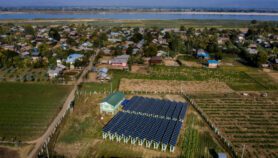Send to a friend
The details you provide on this page will not be used to send unsolicited email, and will not be sold to a 3rd party. See privacy policy.
Climate talks should focus on improving access to energy services, not cutting emissions, say Nancy Birdsall and Arvind Subramanian from the Center for Global Development.
International climate negotiations are stuck, partly because developed and developing countries are too busy playing ‘blame games’ to decide who should cut emissions and by how much.
But emissions are not the primary issue, say the authors. In the developing world, billions of people lack access to basic energy services. Making these people cut emissions would "push them from just above subsistence back to the dark ages", say the authors.
Climate talks should instead focus on improving access to energy in developing countries without adding to emissions. This requires revolutionary improvements in clean technology, say the authors.
Both developed and developing countries must put public funds into green energy research, which could go to guaranteeing a price for future products, as donors frequently do for new vaccines, or other ways of developing clean technologies.
A global intellectual property regime for clean energy that provides incentives for development while also allowing rapid dissemination must be agreed on.
A critical first step is for negotiators to move away from setting emissions reductions targets. Rich countries must drop demands that developing nations commit to emissions cuts. On the other hand, developing countries must adopt targets for emissions-intensity and international verification of these, which could inform technology transfer deals.













